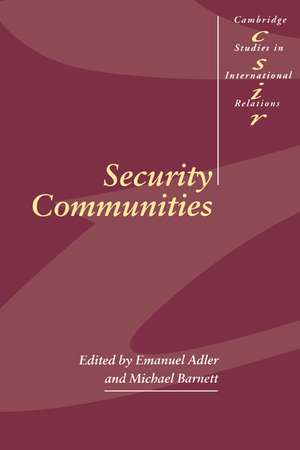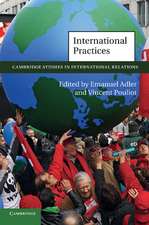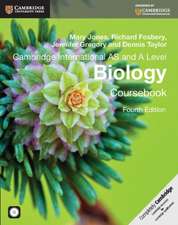Security Communities: Cambridge Studies in International Relations, cartea 62
Editat de Emanuel Adler, Michael Barnetten Limba Engleză Paperback – 27 oct 1998
| Toate formatele și edițiile | Preț | Express |
|---|---|---|
| Paperback (1) | 344.49 lei 6-8 săpt. | |
| Cambridge University Press – 27 oct 1998 | 344.49 lei 6-8 săpt. | |
| Hardback (1) | 1152.84 lei 6-8 săpt. | |
| Cambridge University Press – 27 oct 1998 | 1152.84 lei 6-8 săpt. |
Din seria Cambridge Studies in International Relations
-
 Preț: 198.90 lei
Preț: 198.90 lei -
 Preț: 232.37 lei
Preț: 232.37 lei -
 Preț: 237.58 lei
Preț: 237.58 lei -
 Preț: 210.70 lei
Preț: 210.70 lei -
 Preț: 190.01 lei
Preț: 190.01 lei -
 Preț: 200.87 lei
Preț: 200.87 lei - 8%
 Preț: 401.24 lei
Preț: 401.24 lei -
 Preț: 229.56 lei
Preț: 229.56 lei -
 Preț: 265.70 lei
Preț: 265.70 lei -
 Preț: 200.09 lei
Preț: 200.09 lei -
 Preț: 207.82 lei
Preț: 207.82 lei -
 Preț: 158.77 lei
Preț: 158.77 lei -
 Preț: 162.49 lei
Preț: 162.49 lei -
 Preț: 231.47 lei
Preț: 231.47 lei - 11%
 Preț: 584.77 lei
Preț: 584.77 lei -
 Preț: 241.77 lei
Preț: 241.77 lei -
 Preț: 287.87 lei
Preț: 287.87 lei -
 Preț: 209.13 lei
Preț: 209.13 lei -
 Preț: 299.23 lei
Preț: 299.23 lei -
 Preț: 286.13 lei
Preț: 286.13 lei -
 Preț: 287.87 lei
Preț: 287.87 lei - 11%
 Preț: 641.67 lei
Preț: 641.67 lei - 11%
 Preț: 585.78 lei
Preț: 585.78 lei - 14%
 Preț: 843.23 lei
Preț: 843.23 lei -
 Preț: 303.80 lei
Preț: 303.80 lei -
 Preț: 200.79 lei
Preț: 200.79 lei -
 Preț: 284.78 lei
Preț: 284.78 lei -
 Preț: 279.76 lei
Preț: 279.76 lei -
 Preț: 285.75 lei
Preț: 285.75 lei -
 Preț: 324.24 lei
Preț: 324.24 lei -
 Preț: 290.16 lei
Preț: 290.16 lei -
 Preț: 291.69 lei
Preț: 291.69 lei -
 Preț: 392.52 lei
Preț: 392.52 lei -
 Preț: 315.99 lei
Preț: 315.99 lei
Preț: 344.49 lei
Nou
Puncte Express: 517
Preț estimativ în valută:
65.93€ • 71.59$ • 55.38£
65.93€ • 71.59$ • 55.38£
Carte tipărită la comandă
Livrare economică 22 aprilie-06 mai
Preluare comenzi: 021 569.72.76
Specificații
ISBN-13: 9780521639538
ISBN-10: 0521639530
Pagini: 484
Ilustrații: 3 figures
Dimensiuni: 155 x 227 x 30 mm
Greutate: 0.73 kg
Ediția:New.
Editura: Cambridge University Press
Colecția Cambridge University Press
Seria Cambridge Studies in International Relations
Locul publicării:Cambridge, United Kingdom
ISBN-10: 0521639530
Pagini: 484
Ilustrații: 3 figures
Dimensiuni: 155 x 227 x 30 mm
Greutate: 0.73 kg
Ediția:New.
Editura: Cambridge University Press
Colecția Cambridge University Press
Seria Cambridge Studies in International Relations
Locul publicării:Cambridge, United Kingdom
Cuprins
Part I. Introduction and Theoretical Overview: 1. Security communities in theoretical perspective Emanuel Adler and Michael Barnett; 2. A framework for the study of security communities Emanuel Adler and Michael Barnett; Part II. Studies in Security Communities: 3. Insecurity, security, and asecurity in the West European non-war community Ole Waever; 4. Seeds of peaceful change: the OSCE's security community-building model Emanuel Adler; 5. Caravans in opposite directions: society, state and the development of a community in the Gulf Cooperation Council Michael Barnett and Gregory A. Gaus III; 6. Collective identity and conflict resolution in Southeast Asia Amitav Acharya; 7. Australia and the search for security community in the 1990s Richard A. Higgott and Kim Richard Nossal; 8. An emerging security community in South America? Andrew Hurrell; 9. The United States and Mexico: a pluralistic security community Guadelupe Gonzalez and Stephan Haggard; 10. No fences make good neighbours: the development of the US-Canadian security community, 1871–1940 Sean Shore; 11. A neo-Kantian perspective: democracy, interdependence and international organization in building security communities Bruce Russett; Part III. Conclusions: 12. International communities, secure or otherwise Charles Tilly; 13. Studying security communities in theory, comparison, and history Michael Barnett and Emanuel Adler.
Recenzii
"Adler and Barnett have edited the most interesting volume in international relations theory in recent memory. They and their co-authors have made a compelling argument for the role of community in shaping security policy, using a variety of empirical cases to back their theoretical claims. The result is a volume that truly honors the legacy of Karl Deutsch." Ethan B. Kapstein, Humphrey Institute
"A major and long overdue contribution to the study of security communities. Adler and Barnett offer a theoretical interpretation that significantly advances understanding of how security communities evolve and how they affect international politics. They also amass a rich selection of historical cases. A must-read for scholars and practitioners interested in the sources of stable peace." Charles A. Kupchan, Georgetown University and Council on Foreign Relations
"A major and long overdue contribution to the study of security communities. Adler and Barnett offer a theoretical interpretation that significantly advances understanding of how security communities evolve and how they affect international politics. They also amass a rich selection of historical cases. A must-read for scholars and practitioners interested in the sources of stable peace." Charles A. Kupchan, Georgetown University and Council on Foreign Relations
Descriere
Argues that international community can exist, and examines the possibilities for peaceful relations between states.











